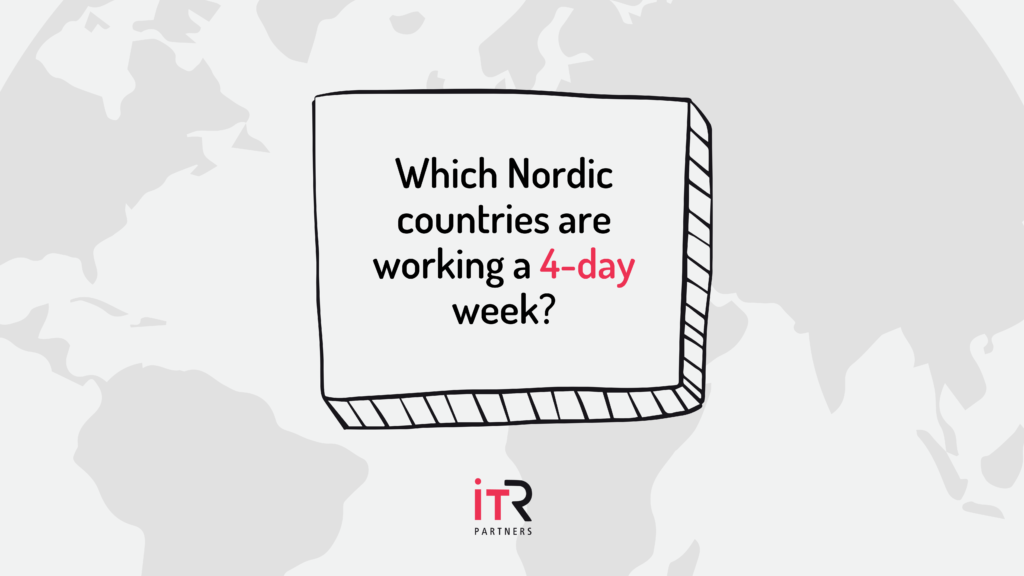Earlier this year we saw many businesses trialling a 4-day work week, and the results were mixed. The trial seemed successful for some, but unsuitable for others due to the lack of staff or the need to stay open for longer.
However, we wanted to look specifically at the Nordic region to find out which countries have adopted this new way of working, as many of our clients reside in these areas.
Let’s take a closer look country by country…
Denmark
Denmark has the second shortest work week in the world – approximately 33 hours! Office-workers tend to leave work at around 4pm every day and also usually work shorter weeks in the summer months to enjoy the weather.
However, despite this, Denmark has some of the worlds highest productivity rates – could this be due to the improved work-life balance and the introduction of a 4-day week?
In 2019, ‘Odsherred Municipality’ became the first to introduce this new way of working and chose to finish their week on a Thursday. Although this sounds like a great plan, they decided to make up for hours lost by working longer days Monday – Thursday.
Although this 4-day work week has been on trial for three years, other Danish businesses are yet to follow suit.
Finland
Prime Minister Sanna Marin is keen to introduce a 4-day week and a 6-hour day as she shared:
“I believe people deserve to spend more time with their families, loved ones, hobbies, and other aspects of life, such as culture. This could be the next step for us in working life.”
As of 1996, Finnish law and ‘The Working Hours Pact’ already states that employees are entitled to alter their hours and start or finish their working day up to 3 hours early. Due to this, the idea of a 4-day working week is a real possibility for Finland.
Iceland
Iceland has thoroughly embraced a shorter working week after conducting the world’s largest 4-day week pilot between 2015 – 2019.
This study led to significant alterations to working hours, as almost 90% of working professionals now work reduced hours and have seen a clear improvement in work-life balance.
Norway
In Norway, the length of the working day hasn’t changed since 1986, and although there doesn’t seem to be a 4-day working week presence yet in Norway, it looks like a 6-hour day could be introduced at some point soon.
Some reasons behind the decision include:
· Environmental – Pressure on the welfare system can be reduced with fewer working hours.
· Rising unemployment – shorter working hours allow more people to secure jobs.
· Pension reform – less daily stress makes it easier for ages 60+ to stay in jobs for longer.
· Family – both partners have a better chance of working as they do not have to commit to as many hours as before.
Sweden
Sweden has had a mixed reaction to a reduced work week. Although the 4-day work week was trialled in 2015, it seems that businesses found it to be too expensive to implement on a large scale.
Are you wondering which other countries have adopted a 4-day work week? You can find a list here.
Flexibility at ITR
At ITR Partners, we take a flexible approach to work as we regularly collectively condense our work week to establish a healthy work-life balance. If the whole team hits their targets by the end of the week, we get Friday afternoon off work to get an early start on the weekend!
Did you know that we are hiring? We are always on the hunt for top recruitment talent to share our flexible working initiatives. Contact us for more details!
Follow us for more updates


